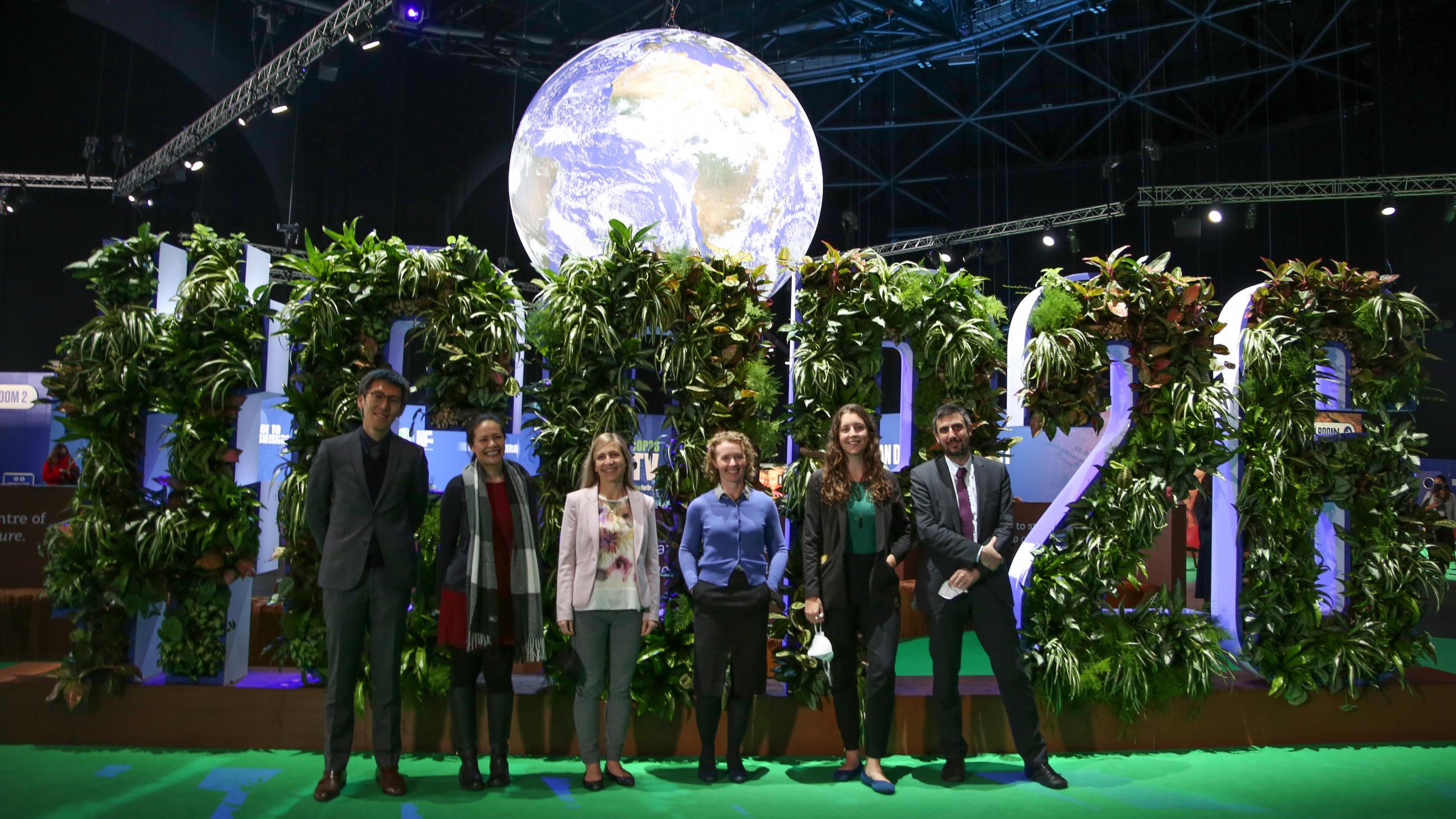On 31 Oct - 13 Nov 2021, Dr Yixian Sun, Lecturer (Assistant Professor) in International Development in the Department of Social and Policy Sciences, attended the United Nations Climate Change Conference in Glasgow (COP 26) as a team member of Earth Negotiations Bulletin (ENB). ENB is a balanced, timely, and independent reporting service on United Nations environment and development negotiations. At the Glasgow Conference, the ENB team provided daily coverage and a summary report of the intergovernmental negotiations and other events in the conference, to document global efforts to tackle climate change. With support from the UN Framework Convention on Climate Change Secretariat, the ENB team had access to intergovernmental negotiations and provided objective insights into the development of the relevant processes. In Glasgow, Dr Sun followed closely the negotiations on climate finance and technology.
Key outcomes of COP 26 include the completion of the Paris Agreement rulebook, the establishment of a two-year work programme to develop a global goal on adaptation, and the start of a process to negotiate a collective quantified goal on climate finance for the post-2025 era. On the Paris Agreement, countries reached agreement on Article 6 (cooperative approaches), enhanced transparency framework, and common time frames, so the Agreement is now fully operational and implementable. However, the existing pledges made by countries remain insufficient to keep the global temperature rise by 1.5 degree Celsius. To raise ambition, the UK Presidency proposed overarching cover decisions, which was adopted by countries as the 'Glasgow Climate Pact'. The Pact stresses the urgency of enhancing ambition and action in relation to mitigation, adaptation, and finance, in this critical decade to address gaps between current efforts and pathways in pursuit of the global goal, and also calls upon countries to phase down unabated coal power and phase out inefficient fossil fuel subsidies.
Despite progress in the abovementioned fronts, countries were not able to agree on several other important issues, especially on how to strengthen efforts to address loss and damage (namely harms caused by anthropogenic climate change including extreme weather events and slow onset events). This reminds us of the significant challenges that our generation is facing to effectively and equitably combat the climate crisis.
The ENB's full report and analysis of the Glasgow conference is available below.
